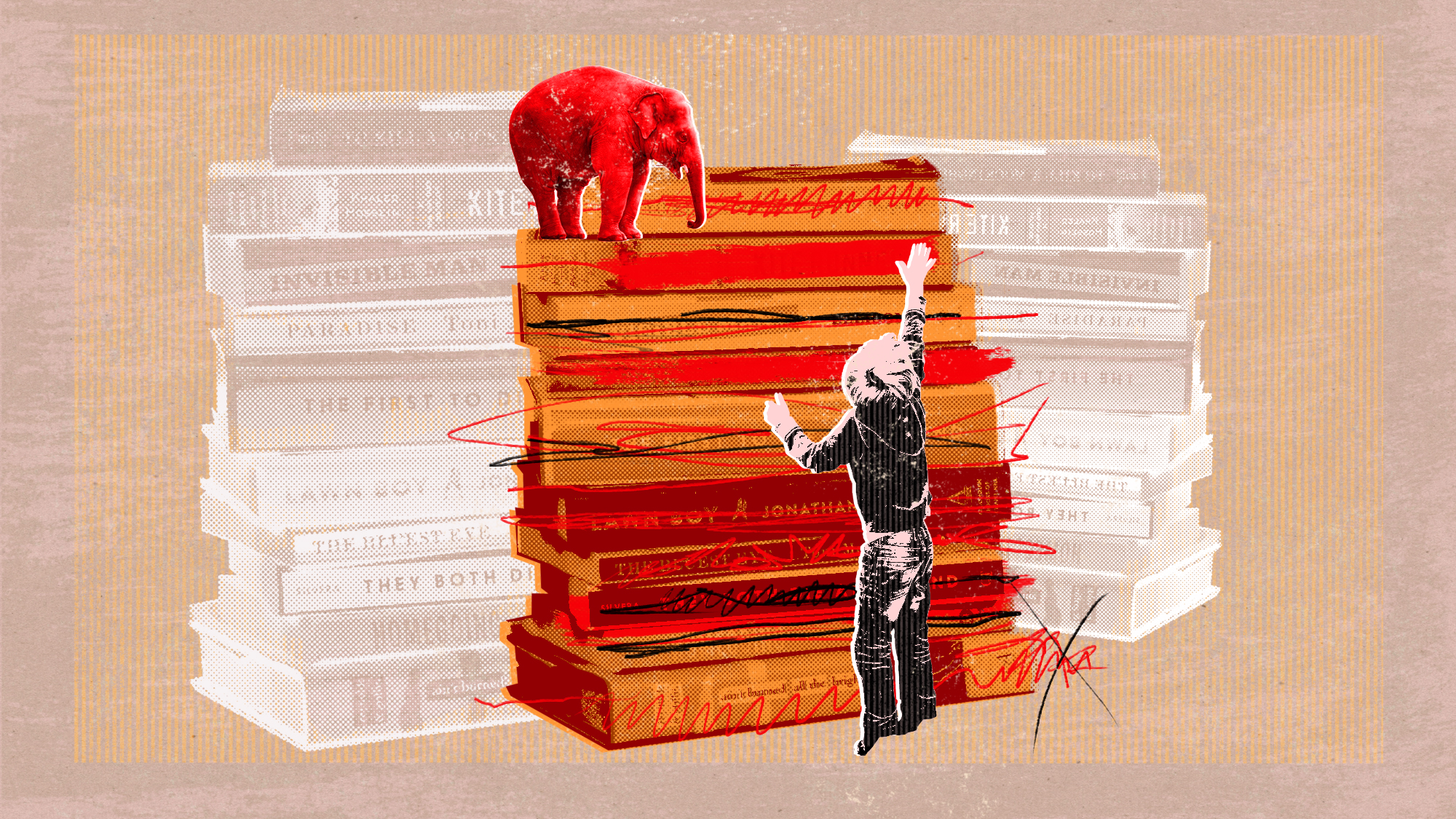The tribes behind the Tory rebellion on Covid passports
Different factions of the party united last night to send message to Boris Johnson

A free daily email with the biggest news stories of the day – and the best features from TheWeek.com
You are now subscribed
Your newsletter sign-up was successful
Almost 100 Tory MPs have joined forces in the biggest parliamentary rebellion yet against Boris Johnson by refusing to back his plans for domestic Covid passports.
“Paradoxically, he won the vote by a huge majority,” said John Rentoul at The Independent. But the prime minister only claimed his hollow victory last night because Labour supported him.
A total of 99 Conservatives voted against the proposal to require people to prove they have been vaccinated against Covid-19 or tested negative before entering nightclubs and large events in England. The regulation is among Johnson’s Plan B measures to tackle the spread of the new Omicron variant of the coronavirus.
The Week
Escape your echo chamber. Get the facts behind the news, plus analysis from multiple perspectives.

Sign up for The Week's Free Newsletters
From our morning news briefing to a weekly Good News Newsletter, get the best of The Week delivered directly to your inbox.
From our morning news briefing to a weekly Good News Newsletter, get the best of The Week delivered directly to your inbox.
In a series of Commons votes, MPs also approved the extension of compulsory face masks in public indoor venues in England; the relaxation of isolation rules for people who are a contact of an Omicron case; and compulsory Covid vaccinations for front-line NHS staff.
“What will worry Downing Street is that the vote brought different wings of the Conservative Party together in opposition to the government’s plans,” said BBC political correspondent Nick Eardley.
The “anti-Johnson feeling” in the Tory backbenches is in part down to his “botched handling” of sleaze scandals and lockdown Christmas parties in Downing Street, wrote Rowena Mason in The Guardian. But an “equally sizeable reason” for discontent with No. 10 is “right-wing, libertarian MPs unhappy with the ideological basis for Covid restrictions”.
Mason suggested that fed-up MPs are rallying under the leadership of Mark Harper and Steve Baker, and the duo’s Covid Recovery Group, which has become “something of a successor to the European Research Group”.
A free daily email with the biggest news stories of the day – and the best features from TheWeek.com
Quentin Letts at The Times described Baker and his followers as “lion-clothed Zulus”, who despair that the PM has veered left. “As sceptical of Covid restrictions as they were of the European Union, these Brexity warriors are naked spear carriers for small-state Toryism.”
But the Tories behind this week’s rebellion extend beyond just the usual suspects. Other tribes included the “Blue Wallers” from former Labour seats in the North, as well as the “Other 2019ers”, according to Letts, who wrote that “rebellion has spread through the Tory 2019 intake faster than Omicron through a submarine”. Even Louie French, who won the Old Bexley and Sidcup by-election less than a fortnight ago, voted no.
The insurgents also included the “Men in Suits”, comprising Tory grandees such as Graham Brady and Iain Duncan Smith, and the “This is Personal” group “of Tory grumblers who used to be ministers and now no longer are”, Letts added.
Yes, the rebels came from “every intake” and from “across the party’s traditions”, agreed Stephen Bush in The New Statesman. But while the scale of the revolt will do nothing to quell speculation that Johnson’s leadership “has entered its final act”, it also showed that opposition to further non-pharmaceutical measures within the party is now “mainstream”.
So Johnson “or any alternative PM” would “struggle to impose another lockdown and remain in their job”, Bush concluded.
That verdict may be a relief to The Telegraph’s Allison Pearson, who dismissed the “rebel” labels altogether.
“In my book, those upstanding men and women are the true Conservatives,” she said. “Rather, it is those who pushed through this repellently un-British measure, with the help of the Labour Party, who are the traitors to our philosophy.”
-
 Crisis in Cuba: a ‘golden opportunity’ for Washington?
Crisis in Cuba: a ‘golden opportunity’ for Washington?Talking Point The Trump administration is applying the pressure, and with Latin America swinging to the right, Havana is becoming more ‘politically isolated’
-
 5 thoroughly redacted cartoons about Pam Bondi protecting predators
5 thoroughly redacted cartoons about Pam Bondi protecting predatorsCartoons Artists take on the real victim, types of protection, and more
-
 Palestine Action and the trouble with defining terrorism
Palestine Action and the trouble with defining terrorismIn the Spotlight The issues with proscribing the group ‘became apparent as soon as the police began putting it into practice’
-
 How corrupt is the UK?
How corrupt is the UK?The Explainer Decline in standards ‘risks becoming a defining feature of our political culture’ as Britain falls to lowest ever score on global index
-
 The high street: Britain’s next political battleground?
The high street: Britain’s next political battleground?In the Spotlight Mass closure of shops and influx of organised crime are fuelling voter anger, and offer an opening for Reform UK
-
 The MAGA civil war takes center stage at the Turning Point USA conference
The MAGA civil war takes center stage at the Turning Point USA conferenceIN THE SPOTLIGHT ‘Americafest 2025’ was a who’s who of right-wing heavyweights eager to settle scores and lay claim to the future of MAGA
-
 Is a Reform-Tory pact becoming more likely?
Is a Reform-Tory pact becoming more likely?Today’s Big Question Nigel Farage’s party is ahead in the polls but still falls well short of a Commons majority, while Conservatives are still losing MPs to Reform
-
 What does the fall in net migration mean for the UK?
What does the fall in net migration mean for the UK?Today’s Big Question With Labour and the Tories trying to ‘claim credit’ for lower figures, the ‘underlying picture is far less clear-cut’
-
 Asylum hotels: everything you need to know
Asylum hotels: everything you need to knowThe Explainer Using hotels to house asylum seekers has proved extremely unpopular. Why, and what can the government do about it?
-
 Five takeaways from Plaid Cymru’s historic Caerphilly by-election win
Five takeaways from Plaid Cymru’s historic Caerphilly by-election winThe Explainer The ‘big beasts’ were ‘humbled’ but there was disappointment for second-placed Reform too
-
 The new age of book banning
The new age of book banningThe Explainer How America’s culture wars collided with parents and legislators who want to keep their kids away from ‘dangerous’ ideas